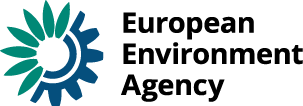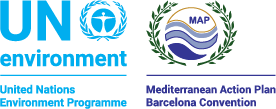H2020 Initiative
Horizon 2020: A cleaner Mediterranean by 2020
The leaders of Euro-Mediterranean countries agreed to increase their efforts to substantially reduce the pollution of the Mediterranean by 2020 at the 10th Anniversary Euro-Mediterranean Summit in Barcelona in 2005. This was endorsed during the Euro-Mediterranean Ministerial Conference on the Environment, held in Cairo in November 2006. During the first UfM Ministerial Meeting on the Environment and Climate Change in Athens on 13 May 2014, ministers renewed their commitments and endorsed the second phase of the H2020 initiative.
The initiative tackles the sources of pollution that are said to account for around 80 % of the overall pollution of the Mediterranean Sea, namely municipal waste, urban wastewater and industrial pollution.
The strategy fleshes out the detail of H2020, grouping activities under four headings:
- Projects to reduce the most significant sources of pollution. The focus is on industrial emissions, municipal waste and urban wastewater, which are responsible for up to 80 % of pollution in the Mediterranean Sea.
- Capacity-building measures to help neighbouring countries create national environmental administrations that are able to develop and police environmental laws.
- Using the European Commission's research budget to develop greater knowledge of environmental issues relevant to the Mediterranean and ensuring that it is shared.
- Developing indicators to monitor the success of H2020.
The work on these topics is organised and coordinated within three groups (see scheme below):
- Pollution Reduction and Prevention Investments (PRPI), chaired by the UfM Secretariat and the European Investment Bank (EIB);
- Capacity Building (CB) chaired by the UfM co-presidency (Jordan and the EU represented by the European Commission) and UN Environment Mediterranean Action Plan (UNEP/MAP); and
- Review and Monitoring (RM), chaired by the European Environment Agency (EEA) and UN Environment Mediterranean Action Plan (UNEP/MAP).
The H2020 Steering Group, chaired by the UfM co-presidency, aims to guide, review, monitor and effectively coordinate activities that contribute to sustainable development through the integration of the environmental dimension into other sectors and within different levels of governance across the Mediterranean region. The Steering Group is responsible for the implementation of H2020. Its members participate on an equal footing and include EU institutions (European Commission, EIB, EEA), the focal points of the UfM partners (including all EU Member States), the UfM Secretariat, the co-chairs of the different H2020 groups, the League of Arab States, and other stakeholders such as intergovernmental organisations, international financial institutions, non-governmental organisations (NGOs), local authorities and the private sector. Three EU-funded regional projects support the initiative in the Southern Mediterranean countries, alongside other activities.
H2020 builds on existing institutions, initiatives and results, filling gaps where it can add value. It operates within the framework of existing and developing policy instruments, and it supports the implementation of the commitments undertaken in the framework of the Barcelona Convention: MAP's Strategic Action Programme (SAP) to address pollution from land-based activities (SAP MED); and the Mediterranean Strategy for Sustainable Development (MSSD), launched by the Mediterranean Commission for Sustainable Development (MCSD), established under UNEP/MAP. In addition to using EU policy tools (such as the Technical Assistance and Information Exchange Instrument, TAIEX, twinning programmes, etc.) it cooperates and tries to coordinate and synergise with all other relevant programmes (e.g. UNEP/MAP, the Global Environment Facility Strategic Partnership for the Mediterranean Large Marine Ecosystem, etc.).
2013 marked the halfway point of the H2020 initiative. A number of assessments (including the EEA-UNEP/MAP first H2020 indicator-based assessment) and studies were conducted and reports produced to feed into an overall mid-term review, carried out during 2013-2014, to present policymakers and other H2020 stakeholders with the achievements and challenges ahead and propose recommendations for the next phase.
Main findings from Horizon 2020 Mediterranean report - Toward shared environmental information systems, published 30/03/2015
- Sanitation has improved steadily in the region over the last decade. Between 2003 and 2011 the proportion of the population with access to sanitation increased from 87.5 to 92 %. There are still 17.6 million people in the region without sanitation, a third of them living in urban areas.
- There is great potential to reuse wastewater in the region. Currently only around 1% of wastewater is reused, so it is possible to make better use of this resource instead of discharging it into the sea.
- Progress in urban wastewater management is difficult to assess as the data available do not provide sound evidence on trends at the regional level.
- While solid waste generated in the region is still approximately half the per capita level in the EU, waste generation in the southern Mediterranean region has grown approximately 15% over the last decade, mostly due to a growing population and increased consumption.
- Waste management needs significant improvement. Around three quarters of waste is collected, but most of this is still disposed of in open dumps, which can have health impacts and find its way into the sea leading to environmental problems. Less than 10% of the waste collected in the region is recycled.
- Industrial emissions have a heavy impact on the Mediterranean. While pollution from heavy metals in seawater has decreased in recent years, local marine pollution from cities, industry and tourist resorts is still leading to pollution of seas and beaches.
The mid-term review process culminated in the UfM Ministerial Meeting on Environment and Climate Change, held in Athens on 13 May 2014, during which ministers reaffirmed their commitment to the H2020 initiative and gave the H2020 Steering Group the mandate to develop and adopt a work programme for the second phase by December 2014. Therefore a work programme for 2015-2020 was prepared, which focuses — under the different H2020 components — on the following objectives:
- strengthening the comprehensiveness, implementation and enforcement of environmental policy and legislation;
- enhancing environmental mainstreaming at national level into other policies;
- supporting better environmental governance, in order to achieve good environmental status of the Mediterranean Sea by preventing marine pollution;
- identifying, financing and implementing priority H2020 investment projects;
- ensuring the availability, quality, accessibility and sustainability of the monitoring data and information needed for the knowledge base that supports regular H2020 assessments;
- increasing the knowledge base and developing innovative technologies for preventing pollution in the Mediterranean Sea.
In parallel, the contracting parties of the Barcelona Convention committed to updating their National Action Programmes (NAPs), which were endorsed by COP19 (Athens, February 2016). The updated NAPs identify and prioritise specific, urgently needed action that shall be considered during the implementation of the 2015-2020 work programme.
Horizon 2020 Review and Monitoring Group
The H2020 Review and Monitoring (RM) group is co-chaired by the EEA and UNEP/MAP. The mandate of the RM group is to monitor the progress of the implementation of the H2020 initiative, particularly through appropriate information-sharing systems that are easily accessible to all Mediterranean partners.
The main tasks of the H2020 RM group are to support projects and activities that develop a coherent indicator-based reporting process for H2020 and to coordinate the activities of the EEA, Eurostat, UNEP/MAP and other relevant institutions that improve knowledge on the Mediterranean environment and help to prepare the State of the Mediterranean marine and coastal environment report.
The RM group is composed of the UfM Secretariat and representatives of its member countries, the League of Arab States, representatives of NGOs and civil society organisations, European Commission partners, academia and other sub-group partners, along with the EEA and UNEP/MAP. Each country designates two representatives who act as a focal point for review and monitoring (MEDPOL focal point, or its representative, and the person in charge of the national state of the environment reporting process).
The EU-funded ENI SEIS II South Support Mechanism — will ensure proper linkages with the agreed work programme of H2020 for the second phase of work (2015-2020) and support the work of the H2020 RM group.
The review and monitoring component of the work programme for 2015-2020 anticipates the preparation of the second indicator-based H2020 assessment report by April 2019. This assessment is fully embedded into the EEA assessment process for the future. The EEA, as co-chair of the RM group and through the ENI SEIS II South Support Mechanism, and in partnership with UNEP/MAP, will ensure the streamlining of information delivery and dissemination to support the implementation of relevant policies and influence decision-making.
Key documents:
- H2020 MidTerm Review, May 2014 (EN, FR, AR)
- Declaration Union for the Mediterranean Ministerial Meeting on Environment and Climate Change, 13 May 2014 (EN, FR, AR)
- Horizon 2020 Work Programme for the second phase of the H2020 Initiative for a Cleaner Mediterranean (2015-2020) (EN, FR, AR)
- H2020 Steering Group Terms of Reference, update 2015 (EN)
- Description of Action ENI SEIS South Support Mechanism (2016-2020) (EN, FR, AR)
Key meetings:
-
1st UfM Working Group on Environment and Climate Change, 14-15 March 2017, Barcelona (Agenda, Conclusions, Meeting documents)
In addition, see also
- Horizon 2020 Cairo declaration (2006) and its associated roadmap ;
- EC Staff paper 3 years Review;
- Paris Declaration 2008 (setting-up the Union for the Mediterranean) (EN, FR)
Websites :
http://ec.europa.eu/environment/enlarg/med/horizon_2020_en.htm
http://ufmsecretariat.org/water-environment/
http://h2020.net/ (H2020 information till 2015)
http://www.swim-h2020.eu/ (Swim-H2020 support mechanism project website, 2016-2019)
http://enpi-seis.pbe.eea.europa.eu/ (ENPI-SEIS Phase I, 2011-2015)
http://eni-seis.eionet.europa.eu/south (ENI SEIS Support Mechanism South, 2016-2020)
-
 H2020 governance
H2020 governance
-
 H2020workprogramme_with table (EN).pdf
H2020workprogramme_with table (EN).pdf
-
 H2020workprogramme_with table (FR).pdf
H2020workprogramme_with table (FR).pdf
-
 H2020workprogramme(AR).pdf
H2020workprogramme(AR).pdf
-
 Revised ToR H2020 groups.pdf
Revised ToR H2020 groups.pdf
- UfM Working Group on Environment and Climate Change, 14-15 March 2017
-
 Key highlights and points of discussion
Key highlights and points of discussion
-
 Review Part2 Compiled information
Review Part2 Compiled information
-
 Cairo Roadmap
Cairo Roadmap
-
 Cairo Declaration 2006
Cairo Declaration 2006


